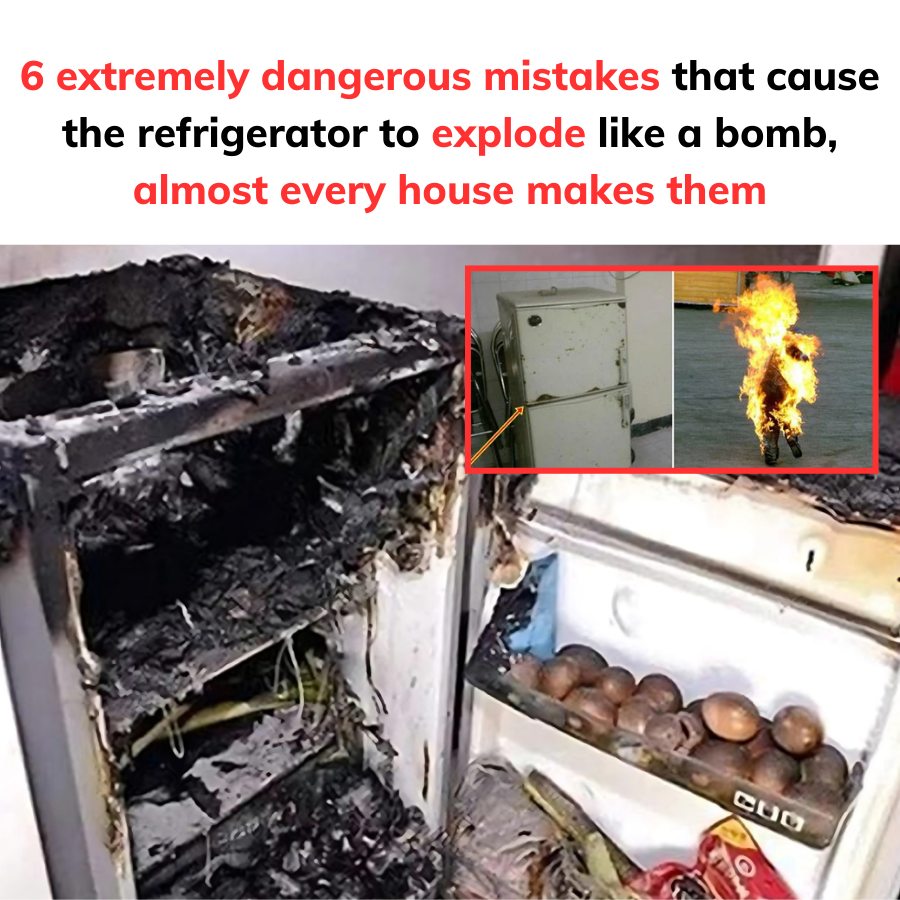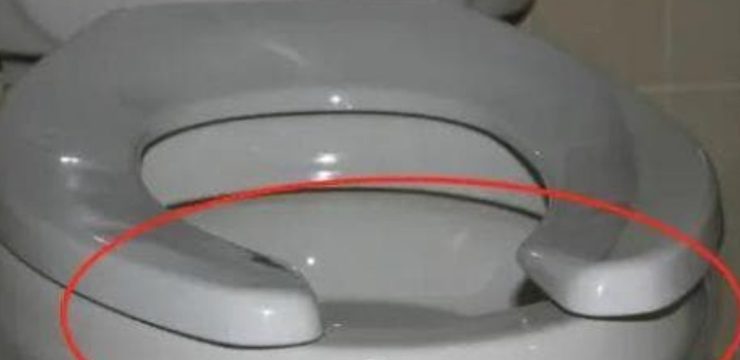The refrigerator is an indispensable appliance in modern homes, but many people are unaware of the potential dangers it can pose if not used or maintained properly. From placement issues to improper storage practices, small mistakes can lead to serious consequences, including fires or explosions. Let’s explore six common and extremely dangerous mistakes that can put your refrigerator—and your household—at risk.

1. Placing the refrigerator too close to heat-generating devices
One of the primary reasons refrigerators explode is their placement near appliances that produce heat, such as gas stoves, ovens, microwaves, or toasters. Exposure to high temperatures can overheat the refrigerator’s internal components, increasing the risk of a malfunction or even an explosion.
Additionally, electrical wires running to the refrigerator can become a fire hazard if they are positioned too close to flammable materials like curtains, blankets, or mattresses. A short circuit in these wires can ignite the surrounding materials, potentially engulfing the refrigerator and spreading flames throughout your kitchen. To prevent this, always ensure the refrigerator is placed at a safe distance from heat sources and away from flammable items.
2. Using an old or poorly maintained refrigerator
Older refrigerators that have not been regularly maintained are more prone to dangerous malfunctions. Over time, components such as compressors or capillary tubes may wear out, become clogged, or require repeated repairs. These issues can lead to excessive pressure within the refrigerator, decreasing its cooling efficiency and significantly increasing the risk of an explosion.
Signs that your refrigerator may be nearing the end of its lifespan include continuous compressor operation, loud noises, excessive ice buildup in the compartments, or a noticeable decline in cooling performance. If you notice any of these warning signs, it’s crucial to have a technician inspect the appliance immediately. Regular maintenance can prevent hazards, but in cases where repairs are no longer effective, it’s safer to replace the refrigerator entirely.
3. Storing carbonated drinks or alcohol in the freezer
Many people mistakenly place carbonated beverages in the freezer without realizing the potential danger. Carbonated drink cans are highly sensitive to temperature changes, and when frozen, the pressure inside the can increases significantly. This can cause the cans to explode violently, turning them into dangerous projectiles and potentially damaging the freezer.
Similarly, storing beer or alcohol in the freezer can lead to pressure changes that increase the likelihood of an explosion. Glass bottles pose an even greater risk, as the expansion of liquid during freezing can cause the glass to crack or shatter. For safety, always store beverages at appropriate temperatures and avoid placing them in the freezer.
4. Gas leaks and electrical issues
Although the gas tank in most refrigerators is built with a sturdy steel shell, a gas leak can create a hazardous situation. Leaks may occur due to damaged welds, faulty pipes, or other structural issues. If leaked gas comes into contact with a spark—such as one from an electrical short circuit—the result can be a catastrophic explosion.
Household electrical systems are often under strain from high-capacity appliances like washing machines, dishwashers, and air conditioners. If the wiring isn’t equipped to handle this load, short circuits become more likely. To reduce these risks, ensure your refrigerator’s gas system is in good condition and have your home’s electrical wiring inspected regularly.
5. Overloading an outlet shared with the refrigerator
Refrigerators are power-hungry appliances that require a dedicated outlet to function safely. Plugging multiple devices into the same outlet can overload the circuit, increasing the likelihood of a short circuit, sparks, or even a fire.
To prevent this, always use a dedicated outlet for your refrigerator. If your home’s electrical system doesn’t have enough outlets, consult an electrician to install additional ones rather than relying on extension cords or multi-plug adapters, which can create further risks.
6. Using insect repellents or aerosols near the refrigerator
Many people unknowingly create hazardous conditions by using insect repellents, hairsprays, or other aerosol-based products near their refrigerator. These chemicals are often flammable, and if they come into contact with sparks from the refrigerator’s motor or electrical components, they can ignite and cause an explosion.
To avoid this, use such products far away from the refrigerator or choose non-flammable alternatives. Keeping flammable chemicals out of the kitchen entirely is a good practice to enhance overall household safety.
Your refrigerator is one of the most essential appliances in your home, but it’s also a potential hazard if misused. By avoiding these six dangerous mistakes, you can significantly reduce the risk of accidents, protect your home, and ensure the long-term safety of your family. Regular maintenance, thoughtful placement, and safe usage practices are crucial for preventing disasters. Remember, a little caution today can save you from serious trouble tomorrow.





